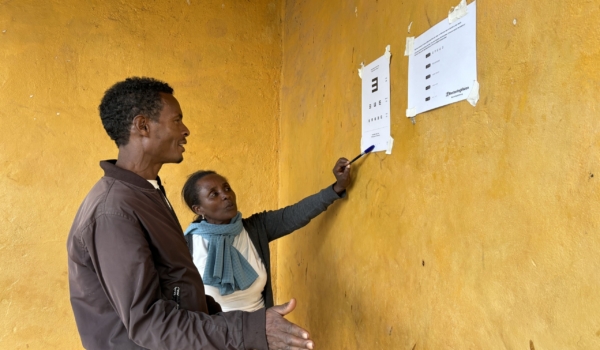Malaria has historically been the leading cause of morbidity and mortality in Liberia and remains responsible for 41% of deaths among children under five years of age. This preventable disease disproportionately affects children in rural areas, where poor access to healthcare restricts them from accessing basic, life-saving treatment. However, due to concerted efforts to prevent, diagnose, and treat malaria, there have been incredible improvements, with recorded malaria cases reducing by one-third from 1.5 million cases in 2016 to 1 million in 2017. To build on this progress, Last Mile Health supported the Liberia Ministry of Health to integrate malaria diagnosis and treatment services into the National Community Health Assistant Program, enabling children under-five to be diagnosed and treated by community health workers within their communities and overcoming the many barriers to accessing health facilities. As of December 31, 2018 community health workers have treated 139,227 cases of malaria in children under-five through the National Community Health Assistant Program.
Recent data from the District Health Information System, the primary database in which district-level data feeds into the Ministry of Health’s central monitoring and evaluation system for the National Community Health Assistant Program, indicates that community health workers are making a substantial and increasing contribution to the overall trend in malaria diagnosis. The data further demonstrates that community health workers are responsible for a significant and increasing proportion of malaria diagnosis at the community-level; in Konobo District, where Last Mile Health has been operating since 2012, community health workers account for the majority of reported cases of malaria. The data highlights positive trends in malaria reporting rates across health information systems.
There is strong recognition by partners that the diagnosis and treatment of malaria in communities is a feasible and effective approach to treating simple malaria cases. The President’s Malaria Initiative (PMI) – a U.S. Government initiative to advance the control and elimination of malaria globally – recently launched their 2019 Malaria Operational Plan, which outlines their plans to scale up interventions to vulnerable populations. As part of their support to the Ministry of Health’s strategy for malaria case management, which aims to reach 85% of patients suspected of malaria and for all positive cases to be appropriately treated with an antimalarial medication by 2020, PMI plans to continue support for community-level malaria testing and treatment by community health workers.




